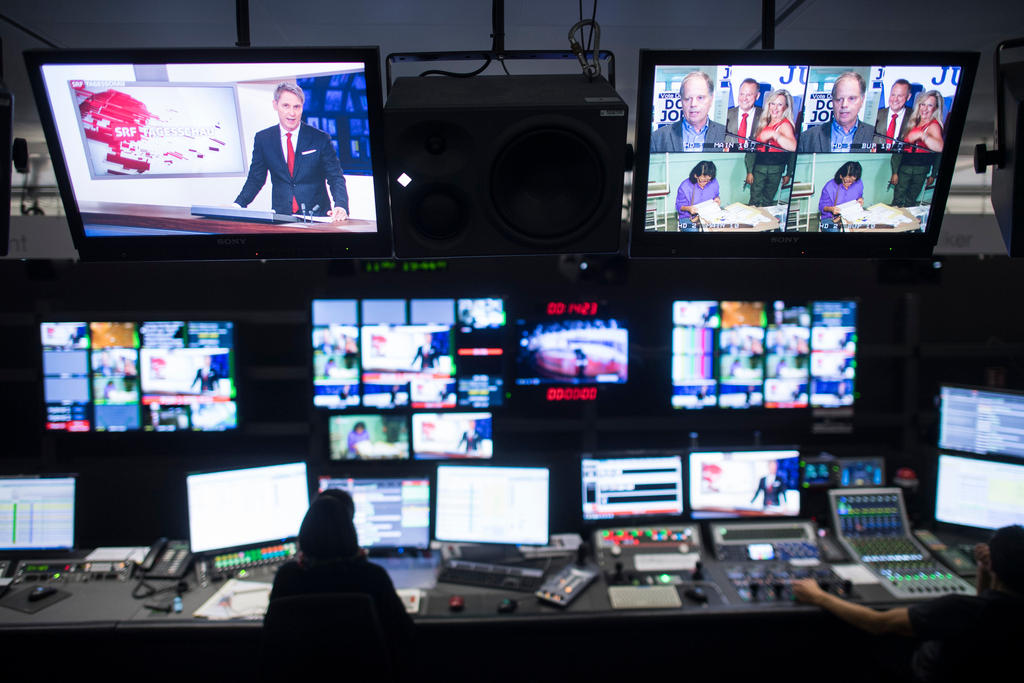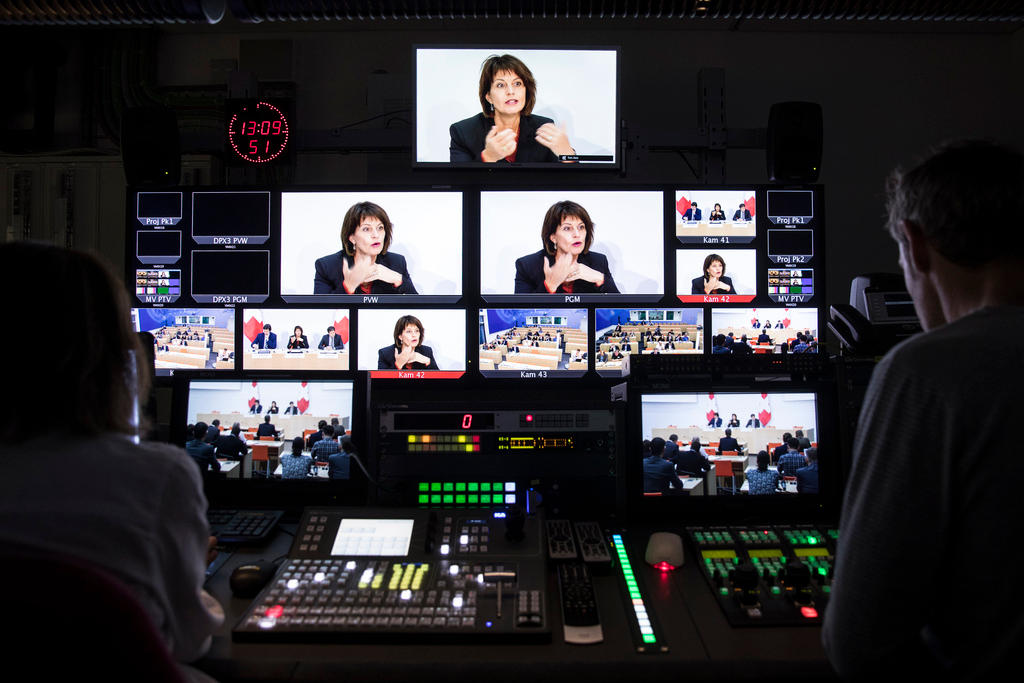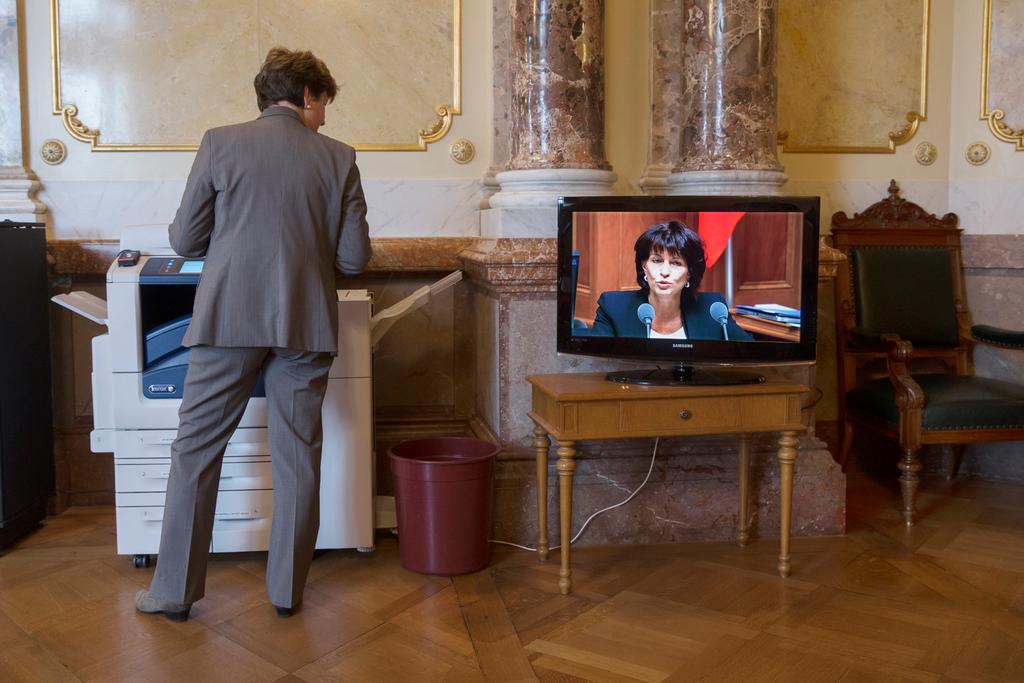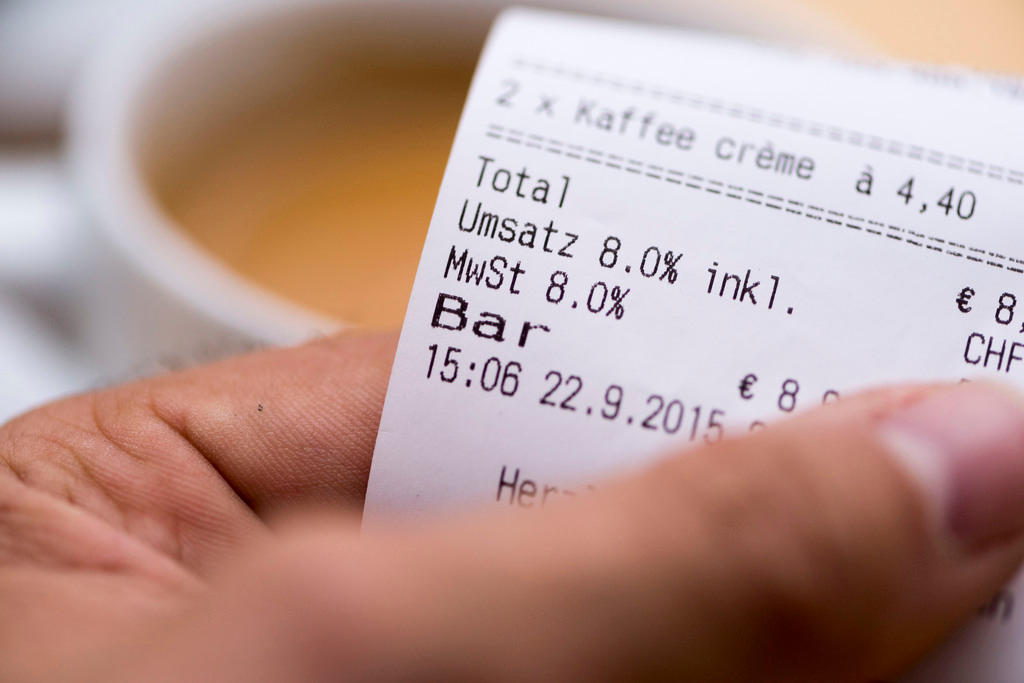Critics of public broadcast fee lag behind

An initiative to scrap the licence fee for public broadcasting in Switzerland is likely to fail at the ballot box, according to the latest poll.
The survey, commissioned by the Swiss Broadcasting Corporation (SBC) including swissinfo.ch, found that 60% of respondents will reject the initiative, which is spearheaded by the youth chapters of two major parties on the right of the political spectrum.
Only 2% of respondents are undecided.
The poll, carried out earlier this month by the GfS Bern institute, found that the ‘No Billag’ initiative only has the backing from a majority of supporters of the Swiss People’s Party.
Voters in the 18-29 age group also support the idea of doing away with the mandatory licence fee for public broadcasting.
However, GfS Bern political scientist Martina Mousson said people in this age bracket are also less likely to cast their ballot.
The pollsters say the initiative had the potential to win at the ballot box in the early stages of the campaign, but lost ground back in November when several key figures, including Communications Minister Doris Leuthard, took a strong stance against it.
“The proposal may still make up ground in the next few weeks, be it through emotive campaigning or a massive mobilisation of critics of the SBC. But it is unlikely to win a majority,” says Mousson.
In the same vein, GfS Bern co-director Lukas Golder says there is no indication that public opinion will change at this stage of the campaign.
“It would take a major scandal for a general shift in opinion,” he adds.
Arguments
There was no significant difference between voters’ opinions across Switzerland’s language regions, although support for scrapping the licence fee was higher in the main German-speaking part of the country, than in the minority French- and Italian speaking regions.
Initiative supporters have argued that the SBC’s position is too dominant in Switzerland and its budget should be cut in order to boost the private media. They also say that the licence fee system is outdated in the age of the internet and Netflix.
Opponents of the initiative – in other words, those that want to keep the licence fee, are concerned about deteriorating quality standards and a lack of media diversity. They also warn that publishers in the private sector could use newfound powers for political ends.
The government, parliament and all but one of the main political parties have recommended a No vote. The most vocal ‘yes’ campaigner has been the Association of the Small and Medium-sized Entreprises.
Taxes
The second issue that will come to a nationwide vote on March 4 is a parliamentary decision to extend by 15 years the right of the national government to tax individuals and companies.
Nearly 70% of respondents in the poll came out in favour of the proposal which is largely uncontested by major parties.
Under the three-tier Swiss systemExternal link, residents pay the lion’s share of their taxes to the cantonal and local authorities. However, it’s the income from federal taxes, including value added tax, that makes up two thirds of the annual national revenue.
A final poll is due to be published in the second half of February.
Pollsters interviewed 1,201 Swiss citizens from all language regions across the country for the first of two nationwide surveys.
Swiss expatriates are not included in the poll for data protection reasons.
The telephone interviews, both with fixed line and mobile phone users, took place from January 8-18.
The margin of error is 2.9%.
The survey was commissioned by the Swiss Broadcasting Corporation (SBC), swissinfo’s parent company, and carried out by the leading GfS Bern research and polling institute.

In compliance with the JTI standards
More: SWI swissinfo.ch certified by the Journalism Trust Initiative














You can find an overview of ongoing debates with our journalists here . Please join us!
If you want to start a conversation about a topic raised in this article or want to report factual errors, email us at english@swissinfo.ch.